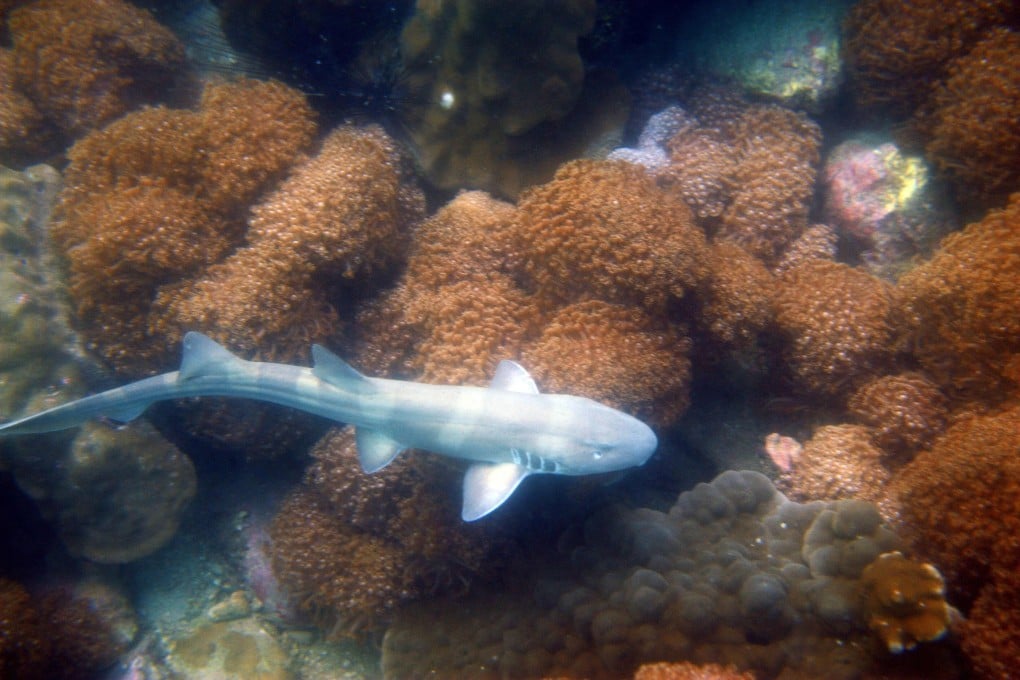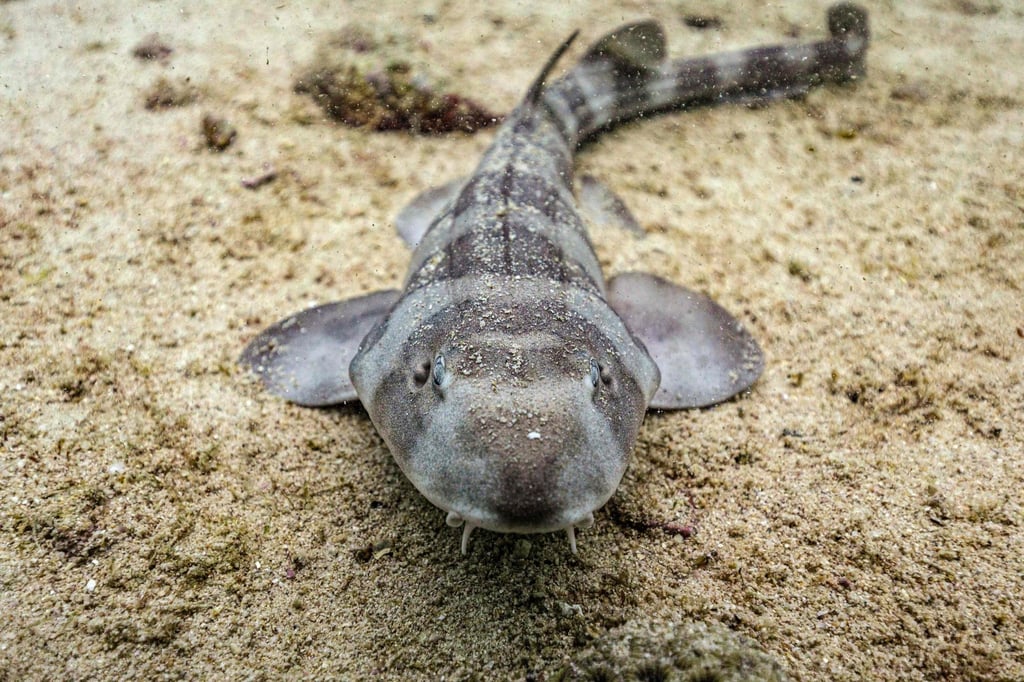Thai tourist haven Ko Phi Phi sees return of baby bamboo sharks vital to ecosystem
- Marine biologists released four predatory fish – aged 9-10 months – on a coral reef off Ko Mah island; they are vital for the ecosystem and harmless to humans
- The population of the predatory fish is declining in Thailand due to overfishing and the destruction of their natural habitat – the coral reefs

In the picturesque Thai resort of Ko Phi Phi, bamboo sharks have been released into the wild after being bred for several months as part of an important environmental project.
The Save Our Sharks project aims to support the fragile marine ecosystem around the Hat Noppharat Thara -Mu Ko Phi Phi National Park in Krabi province, which is popular with tourists from around the world.

In March, marine biologists released four baby predatory fish (vital for the ecosystem, harmless to humans) aged 9-10 months on a coral reef off Ko Mah island.
“Most shark species play an important role in population control,” said marine biologist Kullawit Limchularat, who released the animals into the wild during a dive with colleagues. “They hunt the weakest prey. Stronger animals survive and can reproduce, which ultimately makes the ecosystem stronger and more diverse.”
For tourists, however, there’s nothing to be feared from these sharks. When they are young, the only thing that these small, brown-striped fish have in common with what most people think of when they hear “shark” is their streamlined shape.